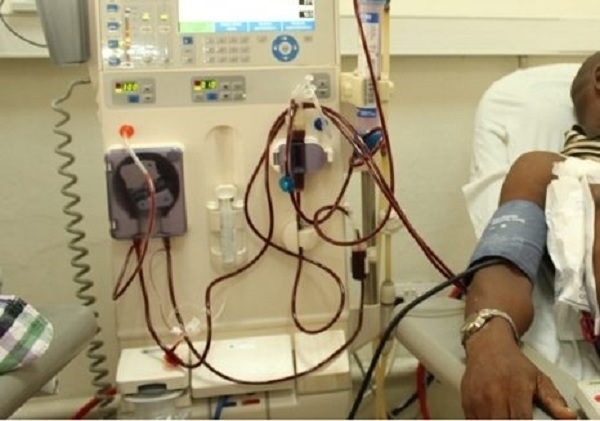The Chief Executive Officer of Korle-Bu Teaching Hospital, Dr. Opoku Ware Ampomah, has Lamented over the sudden increase in kidney-related illnesses, revealing that 17% of the Ghanaian population is grappling with kidney issues.
Dr. Ampomah made it known that their registry indicated around 700 kidney patients who require consistent dialysis treatment.
During an interview on Citi TV yesterday, he emphasized the critical significance of early diagnosis and lifestyle adjustments, asserting that these measures can significantly extend the lifespan of kidney patients.
“In the entire country, the last registry showed that there were approximately 700 patients who needed regular renal dialysis across the nation. Around 17% of the population face kidney problems. This is a substantial figure.
The average across the African continent is roughly 15%, but in Ghana, it’s about 17%. So we have 5 million of our population dealing with kidney challenge. However, if diagnosed early, most of them can manage through lifestyle modifications. Early diagnosis is crucial, hence screening is vital,” he highlighted.
Dr. Ampomah explained that kidneys were designed by nature with surplus capacity, allowing for individuals to donate a kidney and still maintain good health. “A person can lead a healthy life with just one kidney, or even a portion of it”. He affirmed.
Addressing the adjustment in treatment fees, he attributed it to fluctuations in the cedi rate and inflation, which have eroded the costs of consumables, compelling the hospital to operate at a deficit.
“At present, the prices were set a few years ago, with GH¢380 being the most affordable option compared to other facilities. Due to exchange rate fluctuations and inflation, the value of this has diminished, so we are not covering our costs for providing the service. Therefore, it was necessary for us to revise the prices to break even. This service is not for profit, but simply to cover our costs and sustain it,” said the CEO of Korle-Bu.












